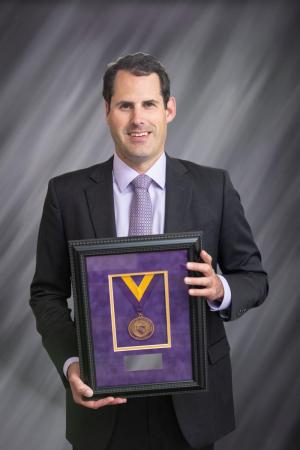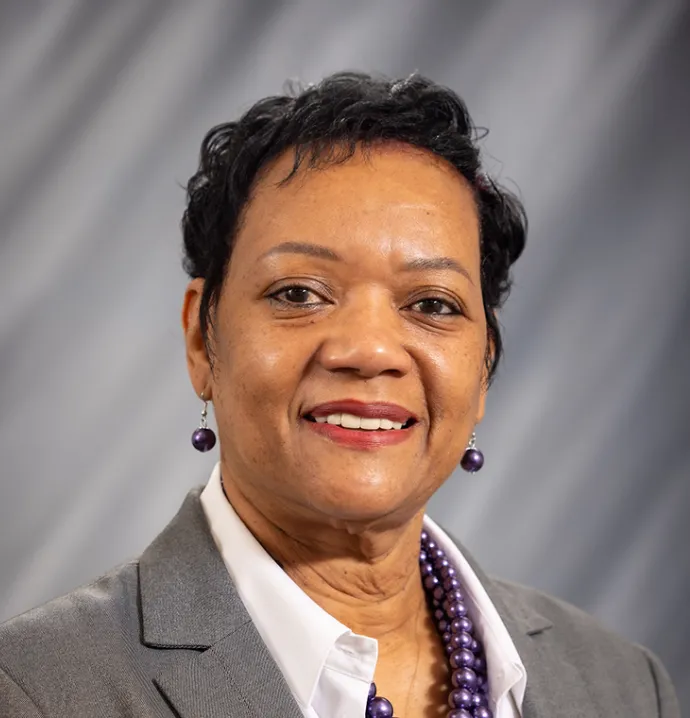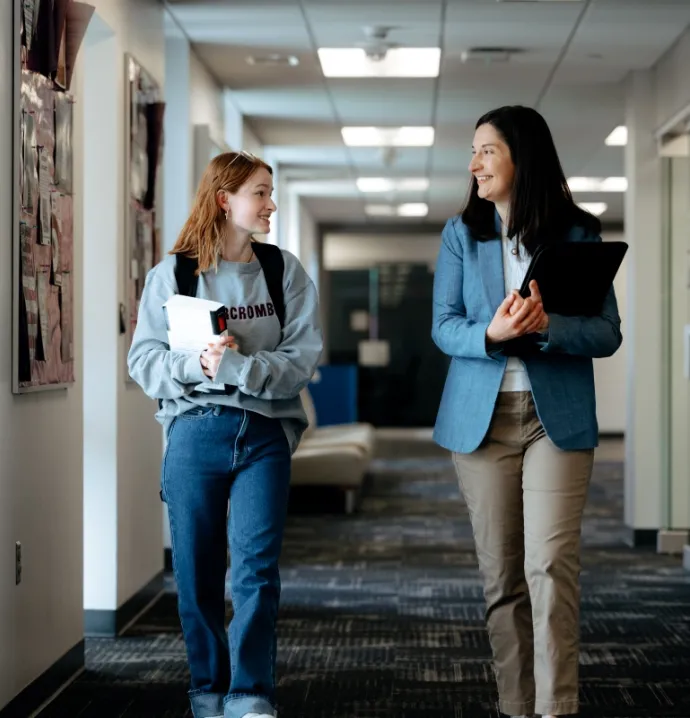Rayzor awarded with Presidential Medallion for invaluable COVID response leadership
Rayzor awarded with Presidential Medallion for invaluable COVID response leadership

As UNI’s director of risk management, Joseph Rayzor is no stranger to safety hazards. He’s helped protect campus from a wide variety of threats, including fire, asbestos, bloodborne pathogens and everything in between. This background perfectly equipped him to lead UNI’s complex, multilayered response to COVID-19.
For two years and counting, Rayzor has been helping the university navigate this global threat, leading steering committee meetings, writing communications and helping coordinate the campus’ response with local, state and national entities. Because of Rayzor’s efforts both as director of risk management and co-chair of the COVID-19 Response Team, President Mark A. Nook honored him in August with a Presidential Medallion, a new award for staff members who go above and beyond.
“Joseph has been the consistent presence throughout the university’s leadership response to COVID-19,” said Nook. “He has worked with the Forward Together team through leadership transitions and provided steady, effective guidance from day one.”
Rayzor, who worked as an attorney for an insurance carrier and in risk management at Iowa State University before coming to UNI, said the honor was unexpected.
“I was quite surprised, to be honest,” Rayzor said of his award. “I knew I had done great work, but I was surprised it was recognized in that way, especially since I knew all of my colleagues across campus had also done amazing work.”
Conversations about COVID punctuated Rayzor’s workdays starting in January 2020. By early March, there were daily meetings with senior leadership and by the time a national emergency was declared on March 13, Rayzor was in constant meetings from 7 a.m. to 7 p.m. Even after that, he would continue responding to emails to ensure that everything was being done to help students, faculty and staff succeed and to do so safely.
If someone had warned him just a few years ago that a global pandemic would require the university to move all learning online within two weeks, Rayzor would have wondered if it was possible. Now having lived through it, his feelings are very different.
“The flexibility and resiliency that everyone on our campus has shown throughout the pandemic have been amazing,” he said.
Rayzor has played a significant role in updating the university’s protocols and procedures and identifying trends to slow the spread of coronavirus. Given the ever-evolving nature of the pandemic, this has been no small feat.
“A great example of that is touch. We used to be very concerned about touch back in spring of 2020,” said Rayzor. “You can still get COVID-19 through touch, but now we know we need to focus more on the aerosol component.”
The frequency at which guidelines change has meant Rayzor is often on the Center’s for Disease Control’s website multiple times a day—something he never expected to become such an integral part of his work. In fact, he now visits the site so frequently that he favors some CDC graphics over others.
Before coming to UNI, Rayzor got his start in insurance claims. Although working during a global pandemic has been unprecedented, to say the least, Rayzor still views his past experiences as a template for navigating COVID-19.
“Typically, with complex insurance claims, you have something that goes awry, and then you have to put it back in order,” he said. “The pandemic is just a much larger version of that. Things are out of order now, but we have to calmly and strategically put them back in place.”
Of all the ways UNI has worked to mitigate the effects of the pandemic for students and staff, Rayzor takes the most pride in the cooperation and partnership with his peers across campus.
“Our COVID-19 response was an all-round team effort, individuals across campus were doing the important work of disinfecting surfaces, washing their hands, monitoring their symptoms and staying home when sick,” he said. “I played an important role, and I am extremely grateful for that opportunity, but I am even more grateful for my colleagues across campus and to have an employer like UNI. What we have here is special.”
For Rayzor, working through such historic times was never something he thought about when applying for his job at UNI. But that’s exactly what he’s done.




